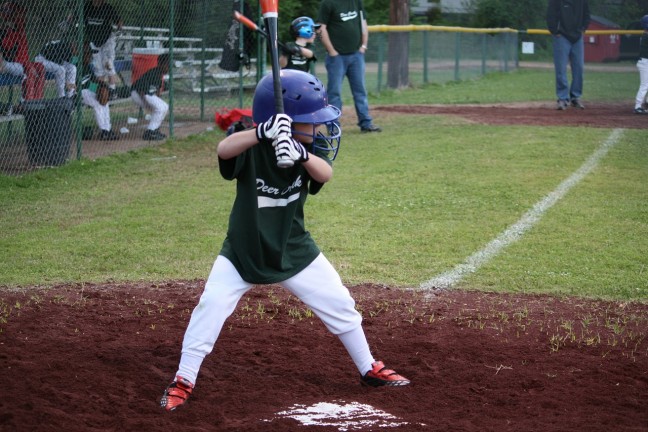I’ll admit, I am not an expert on youth sports, or sports of any kind. But I have two kids who will need me to make choices about the activities they are involved in, and I therefore found the following article sad and fascinating. If you don’t have time to read the whole thing, the basic idea is that parents are being convinced (often by for-profit sports organizations) to push their children into so-called elite sports at younger and younger ages, whether or not it is good for the child or the game.
I’d like to say that I would never fall into the trap of believing that elite youth sports are necessary for my child, but even with children who are still very young, I can see myself occasionally slipping into it. Maybe not the trap of elite youth sports, but certainly the trap of believing that I owe it to my kids to give them the best — and believing what others tell me about what the best is. From buying the most “educational” toys, to paying for the best junior music lessons or pre-schools, to “elite” sports camps, if I don’t shell out money for my child’s benefit, it is easy to make me feel like a selfish parental failure.
What makes parents susceptible to this Parenting Trap?
For starters, I have not led a perfect life. I have regrets. And what parent doesn’t want to fix their own regrets in their child’s life? I sure do. In a blog on a similar topic, youth culture expert Walt Mueller points out:
“Unfortunately, some parents see their kids as a second chance to fulfill dreams they themselves never realized.”
It is only a force of will that allows me to take my eyes off my self to see my child for who he really is and to ask myself, “Okay, since he isn’t me, who is this little bundle of hopes and dreams and what is it that will really help him flourish?” I might wish that someone had pushed me a little harder to stay in dance lessons when I was little, but that doesn’t mean that my child needs me to force him to stay with an activity he hates.
How can we get beyond the reach of the parenting trap?
Well, for starters, I know I need to come to terms with my regrets so they have no more power over my decisions. Maybe I gave up dance too soon, but there were a lot of things that I did instead of dance that I loved — would I give those up? No. More importantly, however, I need to remember that it is never too late for a parent to pursue their own dreams. If I want to dance, I can still learn to dance.
In fact, maybe my child will benefit more from watching me pursue my own dreams than he would if I push him to pursue my dreams for him.
My mother delayed getting a PhD when my sister and I were born. Did she turn her regrets into pressure for my sister and I to pursue graduate education instead of having families? No. She raised us, and then picked up where she left off, ultimately receiving her PhD a few years ago. Her example has given me more motivation than I ever would have received had she pushed me into a graduate degree.
So maybe instead of allowing guilt to push me into pushing my kids, I can worry a little less about giving my children an easy path to their dreams, and a little more about setting an example that it is never too late to work for our own dreams.


